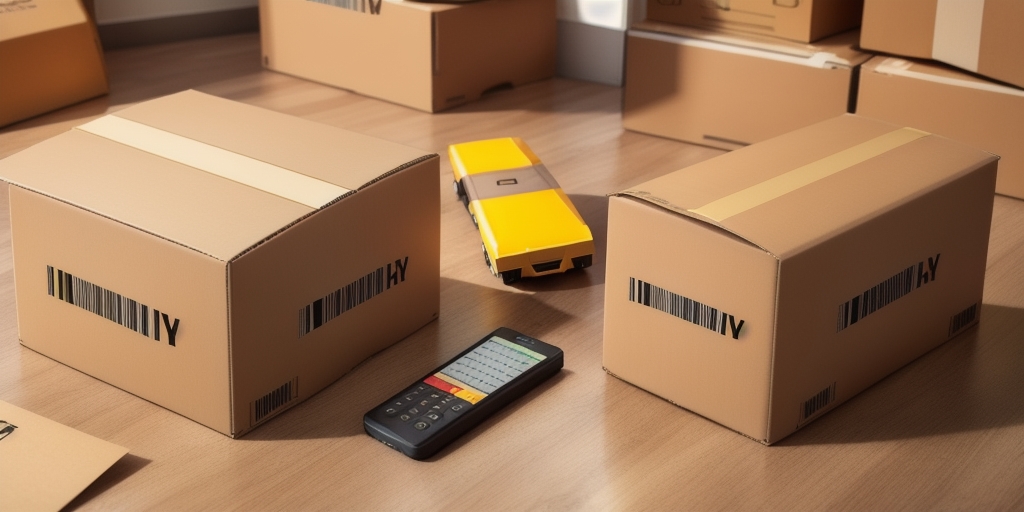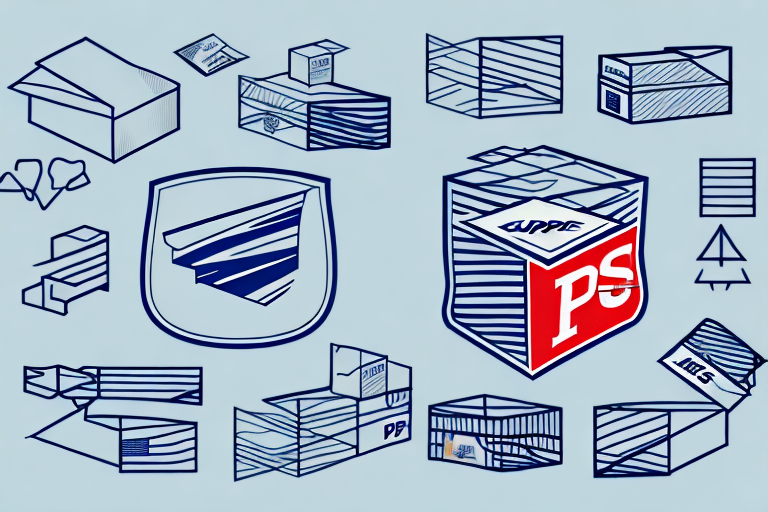What to Do When Your Parcel Is Lost
Having a parcel go missing can be a frustrating and stressful experience, but it's important to remain calm and take action to try and locate it. Understanding the possible causes of parcel loss and knowing what steps to take when you suspect your parcel is lost can help increase your chances of recovering it. In this article, we'll explore all the things you need to know about handling lost parcels.
Understanding the Causes of Parcel Loss
Parcel loss can occur for various reasons, ranging from human error to natural disasters. Here's an in-depth look at the common causes:
Human Error
One of the most prevalent causes is human error. Packages can be mistakenly delivered to the wrong address, lost in a warehouse, or scanned incorrectly during the shipping process.
Weather and Natural Disasters
Adverse weather conditions and natural disasters such as hurricanes or floods can delay or damage packages, increasing the chances of loss.
Theft
Theft is another significant cause, especially for packages left unattended or in insecure locations. Utilizing secure delivery options can mitigate this risk.
Inadequate Packaging
Poorly packaged items may be damaged or lost during transit. Ensuring proper packaging that meets carrier requirements is essential to minimize loss.
Carrier Restrictions
Carriers often have weight and size restrictions. Packages exceeding these limits may be rejected or lost. Always verify carrier guidelines before shipping.
Steps to Take When Your Parcel Is Lost
If you suspect your parcel is lost, follow these steps to enhance the likelihood of recovery:
Contact the Shipping Company
Immediately reach out to the shipping company or carrier to report the issue. Have your tracking number ready to assist them in locating your package.
Verify Delivery with Recipient
Ensure that the recipient hasn't received the package by mistake. Sometimes, parcels are delivered to nearby addresses.
File a Claim
If the package was insured, gather all necessary documentation to file a claim. This includes tracking numbers, receipts, and proof of purchase.
Report to Authorities
For valuable or sensitive items, consider filing a report with local authorities if the shipping company cannot locate the package.
Contact the Seller or Retailer
Reach out to the seller or retailer for additional assistance or compensation. Many businesses offer guarantees for lost shipments.
Checking the Status of Your Lost Parcel
Regularly monitoring the status of your parcel can help in early detection of potential issues:
Use Online Tracking Systems
Most shipping companies provide online tracking tools that offer real-time updates on your package's location.
Contact Customer Service
If online tracking is insufficient, contacting the carrier directly via phone or email can provide more detailed information.
Escalate the Issue
If your package remains unfound, escalate your claim to higher authorities within the carrier's organization or to consumer protection agencies like the Better Business Bureau.
Maintain Documentation
Keep all shipment-related documents, including tracking numbers and receipts, to support your claims effectively.
Filing a Claim for a Lost Package
Filing a claim can help you recover the value of a lost package, especially if it was insured:
Gather Necessary Documentation
Ensure you have the tracking number, proof of purchase, and any other relevant documents ready before filing a claim.
Understand Carrier Policies
Different carriers have varying processes and timeframes for filing claims. Review their policies to ensure compliance.
Provide Detailed Information
Include a description of the package contents and their value to facilitate the claims process.
Follow Up
After filing, regularly follow up with the carrier to check the status of your claim and provide any additional information if required.
Preventing Future Parcel Losses
While it's impossible to eliminate the risk entirely, you can take several measures to reduce the likelihood of lost packages:
Ensure Accurate Labeling
Double-check shipping addresses and use clear, legible labels to prevent delivery errors.
Use Secure Delivery Options
Consider using package lockers, requiring signatures upon delivery, or having packages delivered to a secure location.
Opt for Package Insurance
Insurance adds an extra layer of protection, ensuring compensation in case of loss or damage.
Regularly Track Your Packages
Monitoring your shipments can help you identify and address issues promptly.
Your Rights as a Consumer
Understanding your rights can empower you to take appropriate actions if your parcel is lost:
Compensation Rights
If your package was insured, you are entitled to compensation up to the policy limit. Review your insurance terms carefully.
Filing Complaints
If you believe the carrier mishandled your package, you can file complaints with regulatory agencies like the Federal Trade Commission.
Understanding Carrier Policies
Familiarize yourself with the carrier's terms and conditions to know the extent of their liability and your entitlements.
Handling Lost Parcels During Peak Seasons and International Shipping
Special considerations are necessary during busy times and when dealing with international shipments:
Peak Shipping Seasons
During holidays or major events, shipping volumes increase, raising the risk of delays or losses. Ship early and use expedited services when possible.
International Shipments
International parcels involve additional complexities such as customs regulations. Ensure all documentation is accurate and complete to avoid delays.
Insurance for International Shipments
Consider purchasing additional insurance for high-value or sensitive international packages to cover potential losses.
Best Practices for Shipping Valuable Items
When shipping high-value items, extra precautions can significantly reduce the risk of loss:
Choose Reliable Carriers
Select carriers with a strong track record for secure and reliable deliveries.
Use Robust Packaging
Employ secure packaging methods like double-boxing and tamper-evident tape to protect valuable items.
Purchase Additional Insurance
For items of significant worth, additional insurance coverage ensures adequate compensation in case of loss or damage.
The Role of Package Insurance
Package insurance is a vital tool for protecting your deliveries:
Types of Insurance
Carriers offer various insurance options, and some credit cards or homeowner's insurance policies may also provide coverage.
Understanding Policy Terms
Carefully read the terms and conditions to understand coverage limitations and exclusions.
Benefits of Insurance
Insurance can cover the cost of lost or damaged parcels, providing financial security and peace of mind.
Common Mistakes to Avoid
Avoiding these common mistakes can streamline the process of handling lost parcels:
Delaying Reporting
Report lost parcels promptly to take advantage of carrier liability periods.
Lacking Documentation
Ensure you have all necessary documents, such as tracking numbers and receipts, to support your claims.
Poor Packaging Practices
Avoid using inadequate packaging, especially for valuable items, to reduce the risk of loss or damage.
By following these steps and best practices, you can minimize the chances of lost parcels and enhance your ability to recover them if they do go missing. Stay informed, take proactive measures, and understand your rights to ensure a smooth shipping experience.








